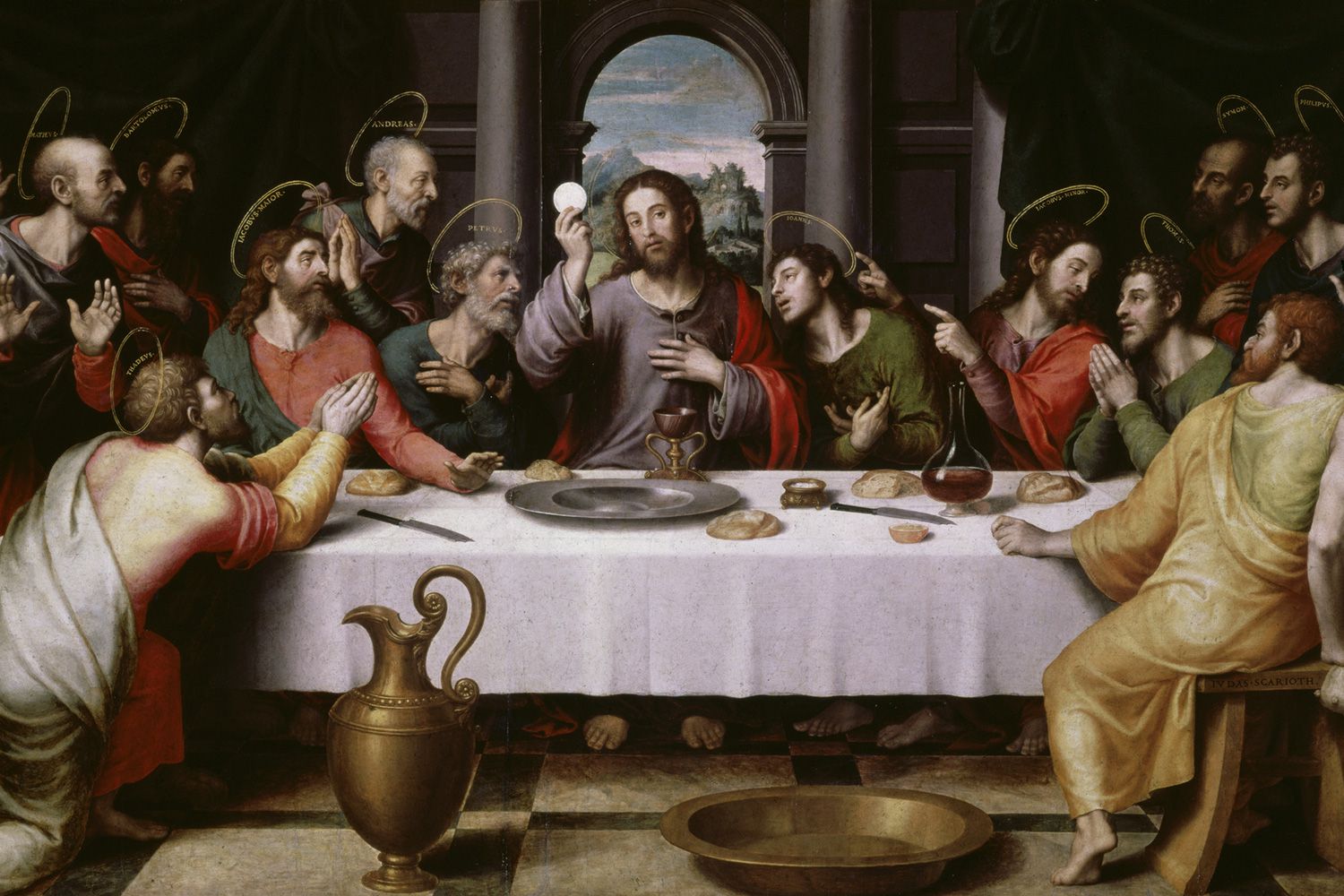Peter and Judas: Sometimes, No Matter What You Do, it isn't "Enough"
11 July 2024

Three years! Peter and Judas spent three years by the side of Jesus, learning about who He was, learning about how much both He and His Father loved them, learning to trust Him. They witnessed His miracles. They took part in His ministry. They dined with Him. They slept near Him. They listened to His words. They were welcomed in, and they were never left behind. Jesus didn’t hurt them, and He didn’t negatively chastise them. He encouraged them to grow and empowered them to do so.
Jesus unabashedly loved Peter and Judas, but they both betrayed Him! What a sting that must have been!
Sure, we can argue that Judas’ betrayal was necessary, but do you think knowing that made it any easier for Jesus? How heavily it must have certainly weighed on Jesus that He had to bring a man into the fold who would most assuredly turn his back and walk away from Him!
And Peter! Peter who was part of Jesus’ inner circle of 3. Peter who was one of those whom Jesus’ trusted most intimately. Can you imagine the pain of being dragged into court to stand trial for certain death and having one of your best friends turn their back on you? Deny having ever even known you?
Of course, Jesus retained His divinity while on earth, but knowing and having time to anticipate the denials certainly must have made it all that more painful. Jesus was also fully human, fully flesh and blood. He experienced sorrow and agony from betrayals just as you and I do.
That pre-knowledge that Jesus did have, however, allowed Him the opportunity to predict both betrayals while opening space for both men to make different decisions.
To Judas who took part in the last supper with Jesus, dipping his hand in the same bowl to moisten his bread, Jesus, while admitting the necessity of it, gives a stern warning regarding the consequences of what Judas was about to do (Matthew 26:24). Oh! That Judas had only taken that opportunity to come clean and turn back!
To the rest of the disciples, also reclining near Jesus at that last meal, Jesus predicted that they would all turn their back on Him (Matthew 26:31). Peter was the only one with the audacity to place himself above the others stating that he would follow Jesus to His death even if no one else did (Matthew 26:33). Jesus took this opportunity to be more specific about how and when Peter would turn away, but Peter remained unwilling to accept Jesus’ words, digging his heals in even further, leading the remaining disciples to do the same (Matthew 26:34-35). Oh, what a woeful and painful example Peter set!
Both Judas and Peter who were called to account prior to their actions being completed, failed to change their ways. Jesus knew this would happen, but that would not take away the sting of having these close friends walk away from Him in His hour of need.
Judas, after Jesus’ trial, physically saw that Jesus had been condemned and recognized his part in the horrific death in which his friend was about to take part. Judas’ guilt over what he had done overtook him. He tried to return the pieces of silver that he had been given in exchange for his friend’s life, thinking that might relieve him of some of his guilt, but that didn’t work (Matthew 27:3-4). On the day that Jesus would be crucified for the forgiveness of sins for all who come to Him, Judas was driven to such despair that he believed he was beyond hope, and he took his own life (Matthew 27:5).
Peter, true to Jesus’ prediction, scattered with the other disciples in the garden (Matthew 26:56). But then Peter decided to creep around, following behind the guards who had arrested Jesus, right up to the courtyard of the high priest where he could sit down with the guards and watch what was going on (Matthew 26:58). I am certain that Peter was curious, but maybe some part of Peter thought that if he was following Jesus closely he would not deny his Lord.
But deny Jesus Peter did, just as Jesus had predicted (Matthew 26:69-75). Peter broke down in remorse over his betrayal, “and he went outside and wept bitterly,” not knowing if he would ever get the opportunity to speak with Jesus again (Matthew 26:75, NIV).
Can you imagine Peter’s hope when he first heard that Jesus had risen and then his joy when he saw Jesus for the first time after hearing this incredible news (Luke 24:12, 36-49)? And then what a beautiful offer of forgiveness Jesus extended to Peter as they sat and dined again together (Luke 21:15-19)!
Peter’s betrayal was predicted at a meal with Jesus, and Peter’s forgiveness was granted at a meal with Jesus. Jesus, the Bread of Life, offered Himself to Peter and Peter accepted (John 6:35). Not only that, Peter, even though he had messed up, because he chose to return, was given a task of immense importance, to “feed [Jesus’] sheep” (Luke 21:17). Peter was forgiven and commissioned.
I often wonder what would have happened if Judas had not given up. If Judas had waited around until Jesus had risen, what would Jesus have done? Would he have offered an opportunity for Judas to repent and to be forgiven just as He had with Peter? Granted, Peter’s and Judas’ offenses were very different from one another, but sin is sin. Judas certainly seemed to be remorseful over what he had done. Perhaps this is one of those questions we can ask one day when Jesus returns again.
As mentors, there will be those who, despite having become close to us, will betray us. It will sting and it will cause angst and we will wonder what we could have done better. But Jesus, the greatest mentor of all, was betrayed and he was stung. Following His example, we continue moving forward and we offer forgiveness even to those who have hurt us most. Because we live in a fallen world, it may be that those who have hurt us cannot earn that place back that they once had, but if we refuse to forgive, we will only harbor resentment and be unable to move forward ourselves.
When Jesus met with His disciples in that upper room, He blessed them with peace, sent them out as His Father had sent Him, breathed on them to impart to them the Holy Spirit, and cautioned, “If you forgive anyone’s sins, their sins are forgiven; if you do not forgive them, they are not forgiven” (John 20:21-23).
Sometimes whatever we do may not seem to be “enough.” Sometimes we will be betrayed, and we will be burned. But ALWAYS, in the example of Jesus, we must learn to forgive and to release, lest we be overcome with bitterness rather than filled with grace and mercy for those whom Jesus loves. Jesus, when we give it fully over to Him, takes our “not enough” and makes it more than enough.
